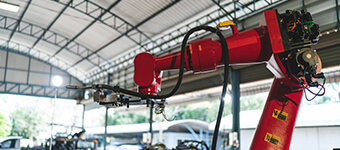Key components of RPA Support and Maintenance include
Bot Monitoring
Continuous monitoring of RPA bots to ensure they are running as expected, able to identify any errors or exceptions, and addresses issues promptly.
Issue Resolution
Investigating and resolving issues related to bot performance, errors, or exceptions to minimize downtime and maintain operational efficiency.
Bot Updates and Enhancements
Applying updates to RPA bots, scripts, or workflows to incorporate new features, improvements, or changes in business processes.
Security Measures
Ensuring that RPA implementations adhere to security best practices, including access controls, encryption, and compliance with data protection regulations.
Bot Scalability
Assessing the scalability of RPA bots and make adjustments to accommodate changes in the volume of data or transactions.
Environment Management
Managing and maintaining the RPA development, testing, and production environments to ensure consistency and reliability across different stages.
Bot Insights
Generating insights using various reporting tools from bot data. The insights consist of how many records were processed by a specific bot machine, how many bots succeeded or failed by dates, and how many bot systems are connected to the server, among other metrics.
Compliance
Ensuring that RPA implementations adhere to organizational policies, industry regulations, and compliance standards.

There are several Evoke RPA service models as follows
RPA Infrastructure as a Service (IaaS)
Customers pay for computing infrastructure on a pay-as-you-go basis. This could include virtual machines, storage, and networking resources.
RPA Tools/Software support as a Service (SaaS)
Users pay for software applications on a subscription basis, often monthly or annually, instead of purchasing and installing the software outright.
RPA Platform as a Service (PaaS)
Users pay for a platform that provides tools and services for application development and deployment, typically based on usage.
RPA Function as a Service (FaaS)
Also known as serverless computing, users pay for individual functions or tasks as they are executed, rather than paying for a fixed amount of server capacity.











